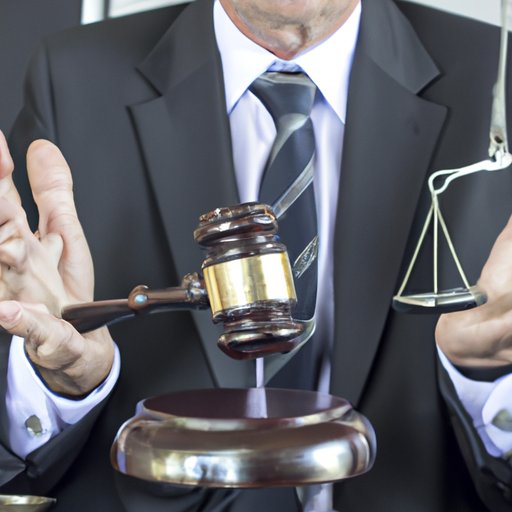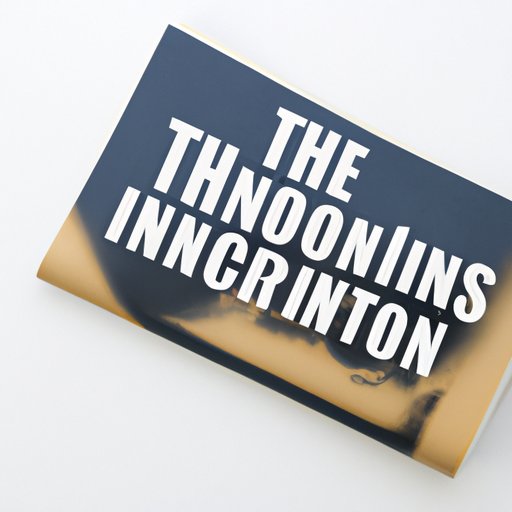
Introduction
Being charged with a crime can be a frightening experience, and the criminal justice system can be a daunting and confusing place. If you’re facing a criminal charge, you may be wondering what to expect at a preliminary hearing and whether you could end up behind bars. In this article, we’ll explore the role of preliminary hearings in criminal cases and examine the impact they can have on a defendant’s potential jail time. We’ll also offer guidance on how defendants can protect their rights and increase their chances of avoiding jail time at a preliminary hearing.
Understanding the Role of Preliminary Hearings in Potential Jail Time: What You Need to Know
A preliminary hearing, also known as a preliminary examination or a probable cause hearing, is a preliminary step in the criminal justice process. It is a court proceeding in which the prosecution presents evidence to a judge to demonstrate that there is probable cause to believe that a crime has been committed and that the defendant is likely the one who committed it. The purpose of the hearing is to determine whether there is sufficient evidence to bind the defendant over for trial in a higher court.
The prosecution is responsible for proving that there is probable cause to believe that the defendant committed the crime. The defendant is not required to present a defense at this hearing, and in fact, most defendants do not testify or produce any evidence at this stage. Instead, defendants typically wait until later in the process, such as during a trial, to present their defense.
The outcome of a preliminary hearing can have a significant impact on a defendant’s potential jail time. If the defendant is bound over for trial and ultimately convicted, they could face significant jail time. On the other hand, if the prosecution fails to establish probable cause, the defendant may be released from custody and the charges against them could be dismissed.

The Surprising Impact of Preliminary Hearings on Jail Time: A Closer Look
Studies have shown that preliminary hearings can have a significant impact on a defendant’s potential jail time. According to the Bureau of Justice Statistics, defendants who were held for trial after a preliminary hearing were more likely to be sentenced to prison than those who were released prior to trial. This is because being held for trial can make it more difficult for a defendant to mount a successful defense; they may be forced to remain in jail while awaiting trial, and this can make it more challenging for them to communicate with their lawyer and prepare for their defense. Additionally, defendants who are held for trial may be seen as more guilty or dangerous by jurors, which can influence the outcome of their trial.
Factors that can influence whether a defendant is held for trial or released include the strength of the prosecution’s evidence, the court’s interpretation of that evidence, and the defendant’s criminal history and background. For example, defendants who have a prior criminal record may be more likely to be held for trial, as may those who are accused of more serious crimes and those who are considered to be flight risks or a danger to the community.
Caught in the Legal System: The Possibility of Jail Time at a Preliminary Hearing
If a defendant is held for trial after a preliminary hearing, they may face the possibility of jail time while awaiting their trial. This can be a difficult and stressful experience, as defendants are typically held in jail until their trial date, which can take months or even years to arrive. During this time, defendants may experience a wide range of negative consequences, including loss of employment, financial strain, and damage to personal relationships. Additionally, during this period, defendants may have limited access to their legal counsel, which can impair their ability to prepare a strong defense.
One of the key problems with preliminary hearings is that defendants are not guaranteed the right to legal representation at this stage of the process. While defendants are allowed to have a lawyer present at their hearing, many are unable to afford one and end up representing themselves. This can be a challenging and daunting experience, as defendants may not be familiar with the legal system or understand their legal rights. Additionally, defendants who represent themselves may have difficulty presenting a competent defense or arguing persuasively against the prosecution’s evidence and argument.
Legal Strategies for Avoiding Jail Time at Your Preliminary Hearing
There are several legal strategies that a defendant can use to challenge the prosecution’s evidence and argument at a preliminary hearing. For example, a defendant can argue that the prosecution’s evidence is insufficient to establish probable cause, or that the evidence was obtained illegally. A defendant’s lawyer can also help to identify potential flaws in the prosecution’s argument, such as inconsistencies in the prosecution’s witnesses’ testimony or a lack of physical evidence.
Having a competent and experienced criminal defense lawyer can be critical for a defendant’s chances of avoiding jail time at a preliminary hearing. A lawyer can help a defendant prepare for their hearing and can guide them through the process, ensuring that they understand their legal rights and options. Additionally, a lawyer can provide a strong and persuasive argument against the prosecution’s evidence, increasing the defendant’s chances of being released.
The Truth About Preliminary Hearings and Jail Time: Myths vs. Reality
Unfortunately, there are many myths and misconceptions about what can and cannot happen at a preliminary hearing. One common myth is that a preliminary hearing is a trial; it is not, and defendants are not required to mount a defense at this stage of the process. Another myth is that a defendant cannot be released after a preliminary hearing; in fact, if the prosecution fails to establish probable cause, the defendant may be released from custody and the charges against them may be dismissed.
It is important for defendants facing criminal charges to understand the role of preliminary hearings and how they can impact their potential jail time. By understanding their legal rights and options and seeking the guidance of an experienced criminal defense lawyer, defendants can improve their chances of avoiding jail time and achieving a positive outcome to their case.
Conclusion: Making the Most of Your Preliminary Hearing
If you’re facing criminal charges and are concerned about the impact of a preliminary hearing on your potential jail time, it’s important to educate yourself about the process and your legal rights. With the guidance of an experienced criminal defense lawyer, you can develop legal strategies to challenge the prosecution’s case and avoid jail time. By staying informed, seeking qualified legal assistance, and presenting a strong defense, you can improve your chances of a successful outcome to your case.





